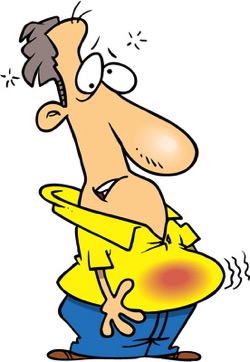Prejudiced
 I hate to start out by violating the Meta Rule I learned in NLP training. It cautions against using the words “all, every and never.”
I hate to start out by violating the Meta Rule I learned in NLP training. It cautions against using the words “all, every and never.”
But my experience and belief is that we are all prejudiced . . . to one degree or another.
The most prejudiced people I know don’t think they’re prejudiced. They just think they’re right.
The most racist people I know don’t think they’re racists. They just think they’re superior.
We prejudge based on our conditioning and/or our experience. It’s not necessarily a bad thing when prejudging falls into the category of discernment. Then it can serve a purpose – perhaps keeping us from going down a dead end trail we’ve been down before.
So how do you know you’re prejudiced vs. discerning? I factually don’t know, but like the judge who was asked to describe what pornography was, said this: “I’ll know it when I see it.”
I’ll know it when I feel it. Discernment doesn’t seem to contain an emotional response within me; prejudice does.
If I give lip service to the politically correct thing but have an internal, emotional response to my own answer, then it’s prejudice.
If your desire is to be less prejudiced, noticing has to start happening. Start noticing when your words and feelings don’t agree. The lie you tell makes your prejudice swell – to the point of discomfort.
Notice that discomfort. It’s a signal that what you outwardly lied about only served to trigger your past conditioning.
When you notice that discomfort and trace it back to your conditioning, your prejudice begins to lose a lot of its steam. A Byron Katie type question to ask yourself in this moment of reflection is: “Who would I be without this prejudice?”
Noticing and questioning open you up to a broader view and make you more discerning when judging who’s who.
All the best,
John
Be Sociable, Share!

